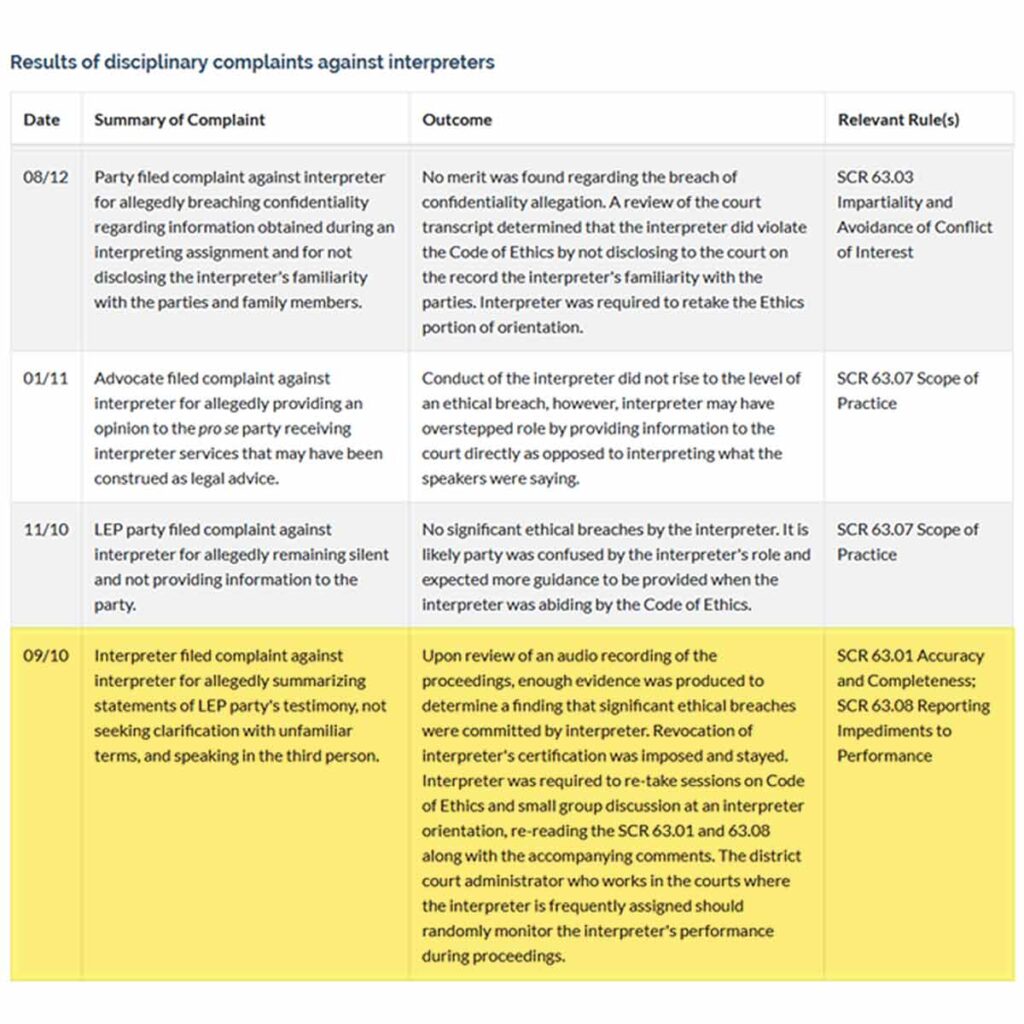In this age of artificial intelligence (AI), many interpreters are feeling pressure to find ways to compete with AI interpreting and translation tools. Some advice suggests interpreters might take on an advocacy role during an encounter.
When interpreters choose to advocate, it means they take action on behalf of an individual with a non-English language preference (NELP) that goes beyond being a bridge to facilitate conversation.
This is born of a desire to help, but interpreters must consider ethical standards and the potential for causing harm to the person they’re interpreting for, to themselves, or both, before acting.
Below, we cover the risks of advocating outside established interpreter protocol, provide real-life examples, and offer alternative ways you can stand above the AI noise.
What You Risk When You Act as an Advocate
The following outlines what can happen when an interpreter takes on the role of advocate.
You Can Make Mistakes
Violating communicative autonomy can easily lead to serious mistakes. One of the most egregious examples is the case of an emergency call in which an interpreter told a 9-1-1 operator that the caller was faking the emergency. Had the operator taken the interpreter’s word, the man facing the emergency likely would have died.
Related: What Being a Parent Taught Me about Impartiality and Interpreting
You Can Lose the Protection Afforded by Interpreter Protocol
If you’re found to have made a breach of ethics, the repercussions you face can be difficult to come back from. Learn from a Wisconsin court interpreter (highlighted below) who nearly had their certification revoked, had to retake trainings, and ultimately contended with a serious loss of trust from the court administration employing them.

You Can Alienate the People You Interpret For
Use your cultural knowledge but use it wisely. You can explain cultural differences if you see a barrier to communication, but overexplaining adds unnecessary detail that can impede the flow of the call and cause frustration. More importantly, you don’t want to make assumptions and present them as facts.
For example, saying, “This is the interpreter. I don’t think the patient understands what you’re saying. She’s probably uneducated, and in our culture, it’s improper to discuss bleeding with a male doctor,” doesn’t give the provider any solutions, and worse, it insults the patient.
Instead, you could say, “Interpreter speaking. I want to make sure you both feel comfortable and fully understood. Your patient may have cultural reservations about discussing bleeding with a male doctor, and it’s possible she didn’t catch everything you said. Would you like me to pause so I can confirm her understanding or check to see if she prefers to speak with a female practitioner present in the room?”
In the second example, the interpreter respectfully frames the concern, without giving their opinion, and clearly provides an option to move forward.
After considering the risks of advocacy, use your best professional judgement. It’s okay to err on the side of caution.
How to Decide When to Advocate
The gold standard for interpreters — emphasized in the codes of ethics by both the National Council on Interpreting in Health Care (NCIHC) and the International Medical Interpreters Association (IMIA) — is neutrality.
Both guidelines include a focus on:
- Accuracy: Render every utterance faithfully, without additions or omissions.
- Impartiality: Avoid inserting personal judgments or acting on behalf of either party.
- Confidentiality: Protect patient information at all costs.
Advocacy should be exercised “only when appropriate and necessary for communication purposes,” per the IMIA.
The NCIHC created an advocacy decision chart to help interpreters determine when it’s acceptable to advocate during an interpreting encounter.
If you do find yourself needing to advocate, aim for the middle ground between strict neutrality and direct intervention, an approach called collaborative advocacy.
So if taking on the role of advocate isn’t the solution to differentiating yourself from AI, what is?
What Interpreters Can Do to Elevate Themselves
The answer to AI is nothing new: gain experience!
These actionable steps can help you set yourself apart as an experienced professional without the pitfalls of taking on an advocacy role.
Get Certified
Getting your medical interpreter certification ensures that you’re taken seriously as a professional and advances your career opportunities. Interpreters also report the added benefit of increased confidence after having their skills validated by organizations like the Certification Commission for Healthcare Interpreters (CCHI) and the National Board of Certification for Medical Interpreters (NBCMI).
Related: Here’s Why Medical Interpreter Certification Is the Perfect New Year’s Resolution
Study, Study, Study
Advance your expertise. Just like you should stay fresh on vocab for your language pair(s), you should also periodically study educational resources on interpreting. Keep glossaries and resources on hand so you can reference them in a pinch.
Be Vocal
Use social media to your advantage. Share your experiences to position yourself as an expert and add credibility to the industry.
For instance, recall times when you used tone-matching skills or mediated culture appropriately to help an interpreting session run smoothly. Your posts are an opportunity to showcase your professionalism, so remember to use proper social media etiquette and not to disclose personally identifiable information of the people you interpret for.
Build Peer Support
Social media is also a great way to network. You can join groups specifically for interpreters on Facebook, peruse forums on Reddit, or build your own community on LinkedIn. Peer support is an underrated resource — talk to your peers to get advice or learn what’s contributing to their success. And don’t hesitate to share your insights and successes in return!
If you’re interested in becoming a contract interpreter for CLI, visit our careers page for information on how to apply!






